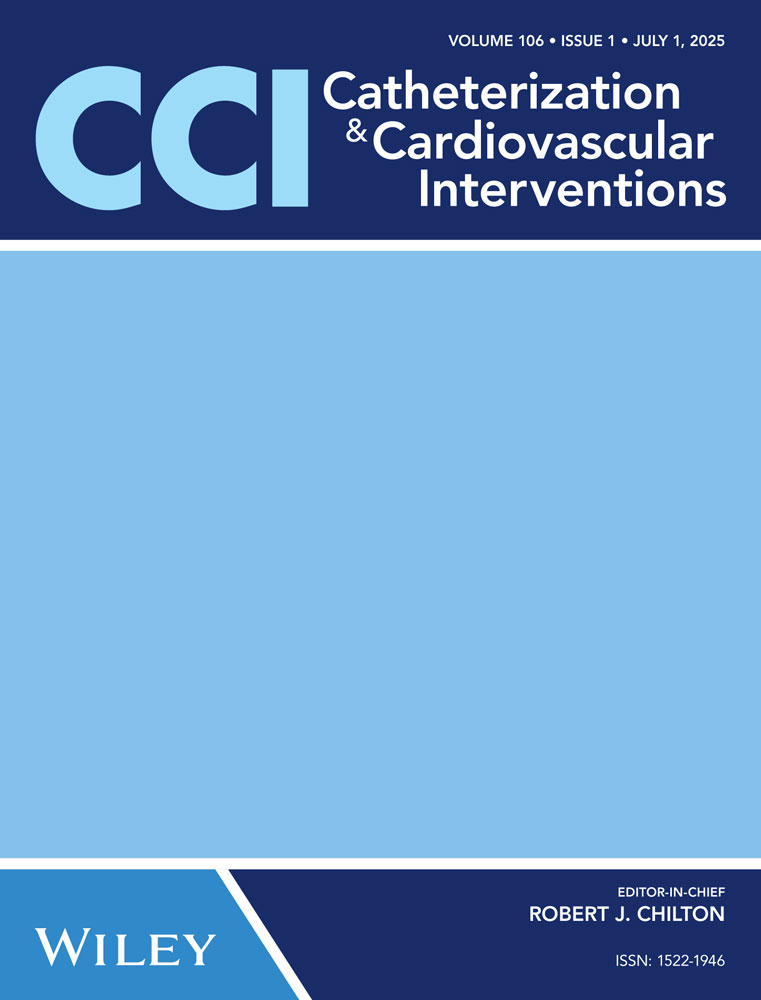The dilemma of success: Percutaneous coronary interventions in patients ≥ 75 years of age—successful but associated with higher vascular complications and cardiac mortality
Abstract
Elderly patients are increasingly referred to percutaneous coronary interventions (PCIs). Recent reports suggest complications rates are declining in the elderly. We sought to determine whether procedural and in-hospital outcomes are different in patients aged ≥ 75 years undergoing nonemergent PCI as compared to patients age < 75 years. The outcome of 266 consecutive patients age ≥ 75 years undergoing nonemergent PCI was compared to that of 1,681 consecutive patients age < 75 years. Compared with younger patients, greater proportions of elderly patients were women and had a history of hypertension, peripheral vascular disease, and cerebral vascular events. Elderly patients had more extensive coronary involvement. Procedural success was similar in both groups (94%). The in-hospital cardiac death rate was significantly higher in the elderly patients (2.3% vs. 0.7%; P = 0.03). Aged patients also had a significantly higher incidence of vascular and bleeding complications. Blood transfusion was required more often in the elderly group (4.5% vs. 2.6%; P = 0.07). The hospitalization length was significantly higher in the elderly group (4.1 ± 6.0 vs. 2.5 ± 4.3 day; P = 0.0004). By multivariate logistic regression (adjusted for baseline clinical and angiographic variables), age ≥ 75 years was found to be an independent predictor of in-hospital cardiac death (odds ratio = 3.9; 95% CI = 1.3–11.5; P = 0.015). Although PCI is technically successful in patients aged ≥ 75 years; it is associated with more acute cardiac and vascular complications and higher in-hospital cardiac mortality. Cathet Cardiovasc Intervent 2003;59:195–199. © 2003 Wiley-Liss, Inc.




